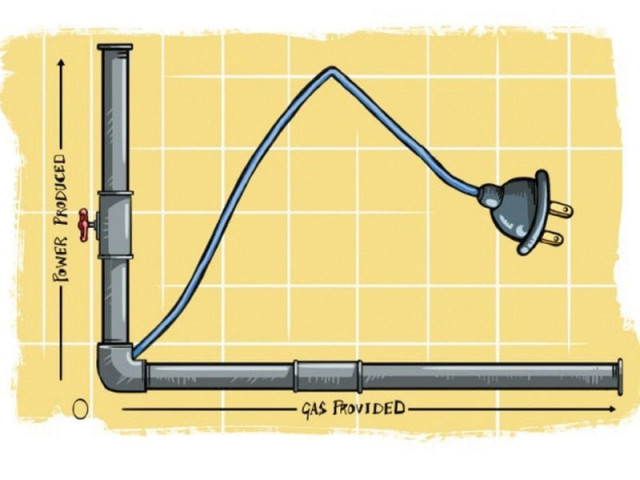Rationing supplies: Govt plans energy audit to stem gas wastage
Audit to cover fertiliser plants, captive power plants of textile units.

Under the audit programme, the fertiliser plants operating at low capacity will be penalised and their share of gas will be reduced and diverted to efficient plants. CREATIVE COMMONS
The government is planning to tighten the noose around industry bigwigs and conduct an audit of two most influential sectors – fertilisers and textiles using captive power plants – in a bid to save and divert gas to power producers to overcome the energy crisis.
Since coming to power earlier this month, the Pakistan Muslim League-Nawaz (PML-N) has been talking about plans to end power outages and slash the power generation cost by cutting off gas supply to inefficient sectors and increasing the supply to the most-efficient power plants.
Earlier, the Pakistan Peoples Party-led coalition government, which completed its tenure in mid-March, tried to undertake the energy audit, but gave in to pressure from the influential fertiliser and textile lobbies.

The National Accountability Bureau (NAB) has also described as a criminal act the provision of gas to inefficient consumers at the cost of efficient power plants.
A senior official, who is working on an energy plan of the new government, told The Express Tribune that the government would go for the energy-efficiency audit at all cost ignoring the lobbying by the influential sectors.
Stressing that the government was very much eager to provide gas to the most efficient consumers, he said gas would be taken away from the inefficient industries like textile units using captive power plants as well as fertiliser manufacturers and supplied to power plants in an effort to bring down the electricity tariff.
In a meeting held on December 15, 2011, the Economic Coordination Committee (ECC) had approved a summary pertaining to the energy-efficiency audit of fertiliser plants. The government appointed the National Productivity Organisation (NPO) to audit the plants and asked fertiliser companies to pay the audit cost. However, the fertiliser manufacturers refused to bear the cost.
“If the government wants to conduct the energy-efficiency audit of fertiliser companies, it should also undertake audit of other sectors, like the textile manufacturers,” a source said quoting representatives of fertiliser firms.
According to sources, some fertiliser companies are running old plants and are, therefore, unwilling to cooperate with the government in the audit drive.
In a ruling in April this year, the Competition Commission of Pakistan (CCP) slapped a penalty of billions of rupees on two powerful fertiliser groups, which, the anti-trust watchdog said, worked as a cartel and pocketed billions from the consumers.
Under the audit programme, the fertiliser plants operating at low capacity will be penalised and their share of gas will be reduced and diverted to efficient plants.
An efficient fertiliser plant produces 42 tons of urea by utilising one million cubic feet of gas per day. However, some plants are producing less than 38 tons.
The Ministry of Petroleum and Natural Resources has repeatedly written letters to the Ministry of Industries, asking it to conduct the efficiency audit of fertiliser plants, but the industry has been able to delay the programme for more than a year on one pretext or the other.
“A delegation of fertiliser manufacturers, led by Fauji Fertilizer, in a meeting held in February this year, said NPO is not competent enough to conduct the efficiency audit and sought proof of its expertise,” said an official of the Ministry of Industries. “A strong will is needed to enforce the ECC’s audit decision,” he stressed.
The move for the efficiency audit was initiated by the NPO, a subsidiary of the Ministry of Industries. An NPO survey put the efficiency of fertiliser plants at 35% except for one modern unit established by Engro that was around 65% efficient.
The Ministry of Water and Power has also suggested that the audit of fertiliser plants was required to curb gas wastage, so that the gas saved can be supplied to power producers.
Published in The Express Tribune, June 26th, 2013.
Like Business on Facebook, follow @TribuneBiz on Twitter to stay informed and join in the conversation.



















COMMENTS
Comments are moderated and generally will be posted if they are on-topic and not abusive.
For more information, please see our Comments FAQ